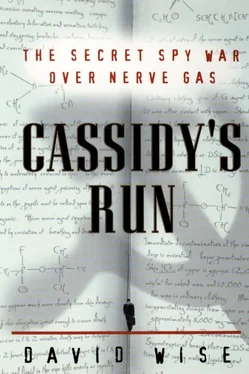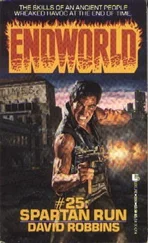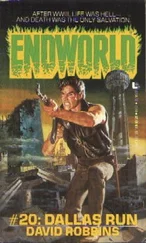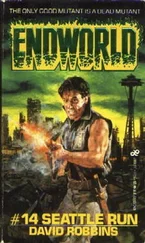To all appearances, the espionage complaint and Parker’s flight to Minneapolis were being carefully coordinated for the likely arrest of the PALMETTOS. According to Jack O’Flaherty, Cassidy’s case agent in Tampa, the FBI office there was instructed to make a hotel reservation for Tafe. “I personally went over on lunch one day and made the reservation at the Sheraton, one block from the FBI office in Tampa.” All the ducks were in a row.
But the bureaucratic wheels slowly turning in Washington mysteriously ground to a halt. With no explanation, O’Flaherty was told to cancel Tafe’s hotel reservation. “I canceled it on Memorial Day weekend,” he said.
Despite the about-face in Washington, Parker flew to Minnesota as scheduled, still determined to get a confession. At the same time, he arranged for Aurelio Flores to meet him in Minneapolis. “The undercover agent was there for a couple of reasons,” Parker recounted, “mainly because of the shock value, and because he spoke Spanish.”
Carmen Espinoza, an FBI agent from New York who was also fluent in Spanish, flew out to Minnesota to interview Alicia Lopez. Both Lopez and his wife spoke good English, but Parker was covering all bases.
When there are two suspects in a case, police and FBI agents normally try to interview them separately. One might break even if the other does not, and separate interviews make it more difficult for suspects to coordinate their answers to questions.
Espinoza, later an assistant U.S. attorney in Connecticut and a Superior Court judge in Hartford, was bilingual, born in Puerto Rico, and a graduate of Brown University and George Washington University Law School. “They needed a Spanish-speaking female agent,” she recalled. “My name popped out of the computer.” Espinoza had joined the bureau only two years earlier, and she was intrigued at the prospect of participating in her first espionage case.
In Minneapolis on June 3, Flores checked into the Sheraton Ritz and called the professor. Parker had scripted the scenario.
Flores sounded casual on the telephone. “I said, ‘Hey I’m in town, come on over.’ So he said, ‘I will.’ He came over to the room. He was glad to see me.”
“What are you doing here?” Lopez asked.
“I’m on a business trip, just passing through town.”
Parker and Dennis Conway were waiting in an adjoining room. After a minute, they knocked on the door. Flores let them in.
“Gilberto,” Flores said, “this is Phillip Parker and Dennis Conway, and we are all FBI agents.”
Lopez looked stunned.
“We showed him our credentials,” Flores said. “He turned pale. He looked like he was going to faint. We told him someone was talking to Alicia at this moment.”
Agent Conway read Lopez his rights. He was told he would be interviewed about his and his wife’s espionage activities.
Lopez stared at Flores. “He said, ‘How long have you been an agent? You just got a job with them?’ He may have thought the bureau somehow found out about him and approached me to help them. ‘No, Gilberto,’ I said, ‘I’ve been an agent since the first day I met you.’ That’s when he sat down.
“He said, ‘From the very first day that I met you, you were an agent?’ I said, ‘Yes. We knew you were a Soviet agent, and we made an effort to get close to you, and that was me.’ He kind of went into shock.”
Parker picked up the story: “He didn’t say anything at first. He was sweating. We said, ‘We know you’ve been working for the Soviets.’ He didn’t respond.
“We continued talking. Most of the talking was done by Flores, in English and Spanish. We used all the interview techniques—good guy, bad guy. Flores was being sympathetic, we want to get your side of the story. I was the bad guy. Aurelio was expressing sympathy for the plight of Hispanics in Mexico and in the U.S.”
Parker had come armed with FBI surveillance photos of Lopez and his wife clearing dead drops. He spread them out on the table. “We showed him the photographs after about twenty minutes. We wanted him to know we knew everything he’d been doing over the past seven years. We showed him surveillance logs, to persuade Lopez we’d been watching him for a long time.” The agents also showed Lopez three-by-five-inch bureau index cards listing the radio transmissions he had received from the Soviets. But it was the photos that seemed to do the trick.
“Soon after that he said, ‘Yes, I have worked for the Russians, I am working for the Russians, and I will.’” [6] The official report that Parker filed afterward, known as a 302 report, summarized the interview: “RIVAS was shown photographs of both he and his wife engaged in espionage activities…. Upon viewing the photographs he stated, ‘You have all of the evidence.’ RIVAS further admitted that he was a Soviet agent…. RIVAS said he decided to work actively against the United States at a very young age. He explained that he could have become a terrorist or do nothing to help his country. But he decided to work for the Soviets in order to make a positive effort.”
According to Flores, Lopez admitted he had been active in three countries. “He said he had been working for the Soviets, that he had worked for them in Mexico, the United States, and Calgary, Canada.”
Parker pressed Lopez for a motive. “He said, ‘It’s not that I love the Russians, it’s that I hate the United States.’” Lopez, Parker said, explained he had spied for the Russians “because of how the United States has treated Mexico, throughout history. And because of the way Chicanos are treated in the U.S.” Mexico, Lopez said, was a puppet of the United States; he had spied for the Russians because any enemy of the United States was his friend.
“He admitted it was him in the pictures,” Parker said. “He never admitted meeting Danilin in Washington. We talked to him about three hours. Some of it was, how do you like Minnesota, the weather. We would change the subject.”
Conway said the bureau hoped to turn the PALMETTOS. Once Lopez confessed, instead of being arrested, he might agree to work for the FBI against the Russians, becoming a double agent for the United States. Or as Conway put it: “Our main purpose was to try to flip the guy. We were trying to give him a break. We gotcha: You can go to jail, or you can work with us. It was a little more sophisticated than that, but that was the bottom line.”
It is a classic maneuver in spy cases and has often worked. In questioning an espionage target, the FBI will attempt—without making any actual promises—to lead a suspect to think he might be able to avoid prison by confessing or acting as a double agent. And sometimes such cooperation does get the suspects off the hook. In this case, Parker encouraged Lopez to talk but offered no guarantees.
“We would not say if he became a double for the bureau he would not be prosecuted. It would depend on the extent of his cooperation. If he turned over to us half a dozen recruitments by the GRU, there was a good possibility he’d walk.
“We’re not after you, we’re after the people who are running you. If you’ll cooperate with us, things will go easier for you. We didn’t promise him he would walk. We did not say we were going to arrest him.”
The FBI agents, Parker said, asked Lopez “when and how he was recruited and by whom. He would not say. He seemed on the verge of cooperation at various points, and we did what we could to make him roll over.”
While the FBI men were questioning Lopez at the hotel, Alicia Lopez was simultaneously being interviewed by Carmen Espinoza and an agent from the Minneapolis office. The two agents had moved in as soon as Lopez had left for the hotel.
“They lived in a town house,” Espinoza said. “We rang the bell, she answered. I went in, and we spoke in Spanish. We told her they were caught. We showed her surveillance photos of them making the drops, some with their child. She was hard as a rock. She was a tough cookie. She said we had fabricated the photographs. She didn’t believe it. She wasn’t going to say anything, and we’re making all this up.”
Читать дальше












